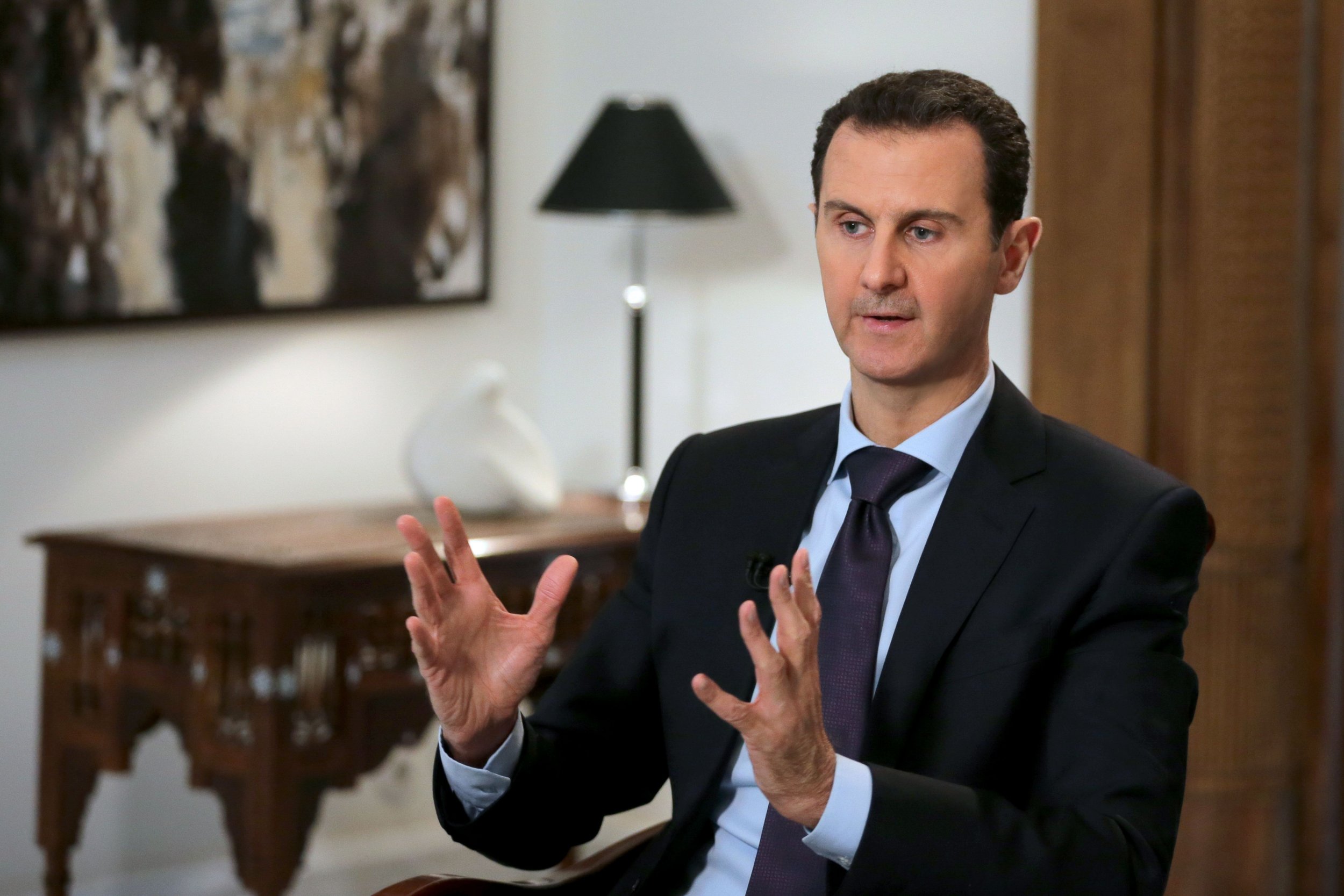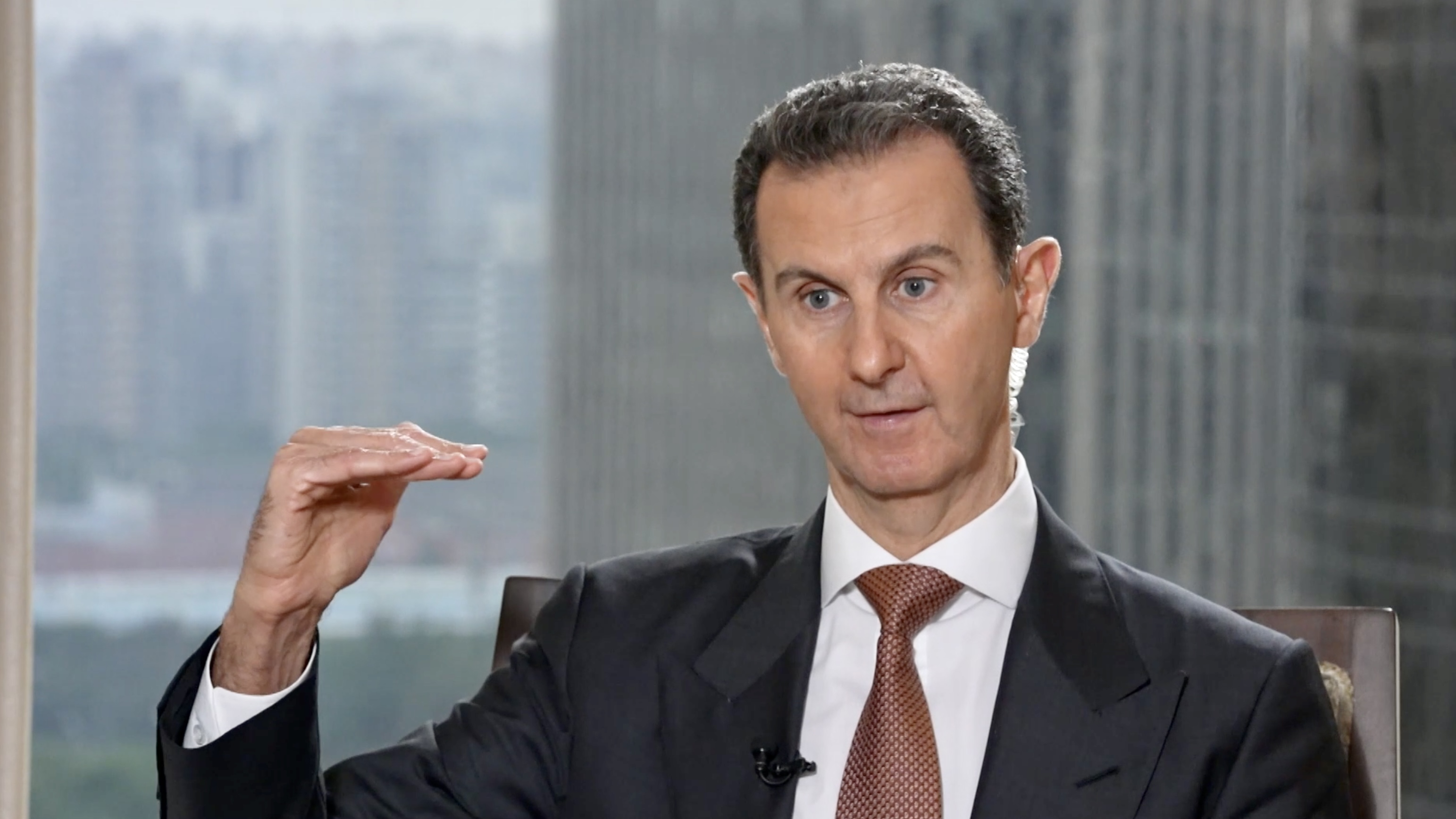Bashar Al Assad Twitter - A Look At Online Presence
When we talk about public figures and their online spaces, it's pretty common to see how their messages get shared, or sometimes, how they face challenges with social platforms. This is very much the case, you know, when thinking about Bashar al-Assad and his presence on Twitter. It's a place where official accounts try to put out information, and sometimes, things get a bit complicated.
Recently, there have been some interesting moments involving accounts linked to the Syrian presidency, and specifically, @presidency_sy. These online spots, in a way, are often watched closely for what they share, and how that content is received, or maybe, even restricted. It's a rather public stage for communication, and things can happen pretty quickly there.
We'll take a closer look at what has been posted, some of the issues that came up with Twitter itself, and just how these online communications fit into a bigger picture. This will include looking at recent statements and how they appeared, or didn't appear, on the social platform, which is, you know, quite a story.
- Zac And Shelly Brown Wedding
- Swizz Beatz Divorce
- Jordans Brother
- Kim Kardashian Mouth
- Anderson Cooper Don Lemon
Table of Contents
- Who is Bashar al-Assad?
- What Happened with Bashar al Assad Twitter Accounts?
- What Kinds of Messages Were Shared on Bashar al Assad Twitter?
- How Do Online Posts Reflect Events?
- Key Events and Their Digital Footprint
- Understanding the Context Around Bashar al Assad Twitter
- A Look at the Posts and Their Reception
- A Quick Look Back
Who is Bashar al-Assad?
Bashar al-Assad, as many people know, was the leader of Syria for a good stretch of time. His family has a bit of history in the country's leadership, too. For instance, his brother, Bassel, was actually chosen to be the one to take over the leadership at one point, but things changed after that, as you might expect.
He was, you know, the head of the Syrian state for quite a while. Recently, he made a statement after his leadership came to an end, which happened after a surprising uprising. This exit, as a matter of fact, took place about twelve days after that unexpected event began to unfold, bringing about a different situation for the country.
Here is some more information about Bashar al-Assad, based on what we've heard:
- Al Roker Left Today Show
- Olivia Milton John
- Are Elizabeth And Sue The Same Person
- Is Kelli Giddish Married
- Glenn Powell Hot
| Detail | Information |
|---|---|
| Role | Former Syrian leader |
| Family | Brother, Bassel, was chosen heir |
| Recent Status | Issued statement after regime fall |
| Exit Event | Came 12 days after a surprise uprising |
What Happened with Bashar al Assad Twitter Accounts?
There was a moment when Twitter took some action concerning an account linked to the Syrian presidency. This happened on a Monday, you see, when the social media platform briefly put a stop to the account's activity. The reason for this temporary halt was that the account, @presidency_sy, had put out an interview featuring President Bashar al-Assad, which was conducted by Rai News 24, and it just wasn't, you know, allowed to stay up.
So, this suspension was a pretty big deal for those watching how official communications happen online. It shows how social media companies can, in a way, control what gets seen and what doesn't, especially when it comes to figures like Bashar al-Assad. The latest posts from this account, and also from @bashar_al_assad, are often looked at by many people to get a sense of what is being shared from that side.
It's interesting to consider how these online platforms operate, isn't it? They have their own rules, and sometimes, even big interviews or statements can cause an account to be put on hold, which is, basically, what happened here. People often check for the very latest updates from these accounts, trying to keep up with what's happening.
What Kinds of Messages Were Shared on Bashar al Assad Twitter?
Looking at the kind of content that has appeared, we know that former Syrian leader Bashar al-Assad put out his very first statement after his time in power ended. This was done through a social media post, which is a common way for figures to get their messages out these days. In this particular post, he made a claim that he had, in fact, planned to keep on fighting against rebel forces before things changed.
His departure, you know, happened twelve days after a sudden uprising had taken place. This suggests that the social media post came at a time of significant change. The content of his message, claiming a desire to continue fighting, gives a bit of insight into his thoughts during that period, and it was put out for everyone to see on an online platform, so to speak.
It's also worth remembering that military commanders and civilian leaders of what were called "free Syrian army militias" were part of certain councils. While the text doesn't directly link this to Bashar al-Assad's specific tweets, it provides a backdrop for the kind of discussions and events that would be happening around the time of his social media posts. These posts, therefore, are like snapshots of a very particular time, in some respects.
How Do Online Posts Reflect Events?
Sometimes, what is shared online, even if not a direct tweet from a person, can reflect bigger happenings or information that is out there. For instance, the text mentions Saydnaya, which was known as the regime’s most talked-about prison. This piece of information, while not a tweet itself, provides a bit of context about the environment and history that surrounds the former leader.
Also, there's a mention of a video that came from a documentary titled ‘Syria’s Detainee.’ This kind of material, whether shared directly or just as background knowledge, contributes to the overall picture of events. It shows how different forms of media, like videos and documentaries, can play a part in shaping what people know and think about situations, and how those things might, you know, be referenced or implied in online discussions.
So, even if Bashar al-Assad’s Twitter or other social media accounts weren't directly posting about these specific items, the existence of such information, like details about the prison or the documentary, forms part of the public conversation. These elements, basically, help to fill in the story around the events and the people involved, giving us a fuller sense of what was going on at the time. It's about the bigger picture, you know.
Key Events and Their Digital Footprint
The temporary stopping of the Syrian presidency's Twitter account was a notable event. It happened after the account put out an interview with President Bashar al-Assad, an interview that Rai News 24 had conducted. This action by Twitter shows that even official channels can face restrictions on what they share, especially when the content involves figures like Bashar al-Assad. It was a clear signal from the platform, you could say.
This kind of digital activity, or the lack of it, often lines up with bigger, real-world happenings. We know that former Syrian leader Bashar al-Assad made his first public statement after his time in power ended. This statement, which he put out as a social media post, was a significant moment. It occurred just twelve days after a sudden uprising had taken place, leading to his departure.
The timing of these online events, like the account suspension and the social media post, is pretty important. They give us a sense of how quickly things can change, both in the real world and in the digital space. The fact that his exit came so soon after an uprising, and then his statement appeared online, ties these digital footprints directly to major shifts in power. It's a very direct connection, in some respects.
Understanding the Context Around Bashar al Assad Twitter
When we look at information about Bashar al-Assad and his presence on platforms like Twitter, it's good to remember the wider media landscape. For example, we see mentions of people like Roula Khalaf, who is the editor of the FT. She picks her favorite stories for a weekly newsletter, which shows how news and opinions are put together and shared by different media outlets. This is, you know, a different way of getting information out there.
Then there's also the mention of an opinion piece written by Andrew Mitrovica. This kind of content, whether it's a specific article or a general news selection, provides a backdrop for understanding the discussions and viewpoints that exist around figures like Bashar al-Assad. It's about the overall media environment where his own digital messages are being received and talked about. So, it's not just about his tweets, but about everything else being said, too.
These pieces of information, like the editor's selections or an opinion piece, were published on a specific date, December 11, 2024. This date helps us place the context of the information within a particular time frame. It means that the discussions and news around Bashar al-Assad, and perhaps his online activity, were happening during that period, giving us a clearer picture of when these things were relevant, as a matter of fact.
A Look at the Posts and Their Reception
The latest posts from @presidency_sy are often a point of interest for many people. These posts, which come from the Syrian presidency's account, aim to share official information or statements. Similarly, the posts from @bashar_al_assad are also closely watched, as they come directly from a personal account linked to the former leader. These are the main ways, you know, that some messages are put out for a wide audience to see.
The fact that Twitter temporarily stopped the @presidency_sy account after it broadcasted an interview with Bashar al-Assad by Rai News 24 tells us a lot about how social media platforms handle content. It suggests that certain content, even if it's an interview with a prominent figure, might go against the platform's rules. This kind of action, basically, shows the power these platforms have to control the flow of information, which is, you know, quite a thing.
So, when we consider what's being posted, and how it's being received, or even blocked, it paints a picture of the challenges in communicating online, especially for political figures. The very latest updates from these accounts are always a topic of discussion, and people are often curious about what they might contain, or why they might suddenly disappear. It's a constant back and forth, you might say, between what is shared and what is allowed to stay up.
A Quick Look Back
We've taken a look at Bashar al-Assad and his online presence, especially on Twitter. We saw that accounts like @presidency_sy and @bashar_al_assad are sources for his statements and updates. There was a notable moment when Twitter briefly stopped the Syrian presidency's account after it shared an interview with
- Do Dogs Like Watching Bluey
- Is Rudy Pankow Leaving Outer Banks Season 4
- Anderson Cooper Don Lemon
- Brittany Murhpy
- Amanda Brumfield Age

Math Problem: Syrian President Assad's Son Bombs at Mathematics

Bashar al-Assad - The New York Times

The Rule Of Bashar Al-Assad: A Legacy Of Conflict And Repression